MOST TRUSTED BIODIESEL COMPANY IN INDIA
LATEST NOTIFICATION / NEWS
Citizencare Biofuel Power Projects Private Limited News and Notification

Mr. Narendra Modi
(Hon'ble Prime Minister of India)

Dr. Prem Kumar
(Minister of Agriculture in the Government of Bihar)

Mangal Pandey
(Health Minister, Bihar.)

Ravi Shankar Prasad
(Communications and Electronics and IT portfolios in the Government of India.)

Gupteshwar Pandey
(IPS officer of Bihar)

Ganga Prasad
(Governor of the state of Sikkim and former Governor of Meghalaya.)

Ram Kripal Yadav
(State Minister Ministry of Rural Development)

Jai Kumar Singh
(Department of industries-cum Science & Technology Government of Bihar)

Pramod Kumar
(Bihar Tourism Minister)

Jitan Ram Manjhi
( 23rd Chief Minister of Bihar)

Bijendra prasad Yadav
(Minister of Energy in the Bihar Cabinet)
OUR SERVICES
EXISTING INFRASTRUCTURE
Citizencare Biofuel Power Projects Private Limited has been designed to conform and surpass stringent automotive, be fuel quality standards. Hence, Citizencare Biofuel Power Projects Private Limited is fully compatible with existing fuel infrastructure, distribution systems and engines. It is compatible with both old and new diesel engines.
PERFORMANCE
Citizencare Biofuel Power Projects Private Limited derives high engine performance and a longer-lasting fuel.Citizencare Biofuel Power Projects Private Limited burns cleaner and more efficiently, as it has a very high cetacean number (which is a quality indicator of diesel fuel). This result in more pick-up (power) and torque for your engine and reduction in engine noise.
HIGHER FUEL EFFICIENCY
With a cetane number 50% higher than petroleum diesel, Citizencare Biofuel Power Projects Private Limited gives you smoother combustion and helps lower emissions. Thus, Citizencare Biofuel Power Projects Private Limited offers better fuel efficiency and a better ride bio
Watch Our Company Programme
India is currently the world’s 4th largest emitter of greenhouse gases, and its transport sector accounts for 13% of the country’s energy-related CO2 emissions (MoEF, 2010). However, India’s growing transport sector can become more sustainable and climate compatible by aligning development and climate change agendas. As total Diesel demand for year 2016 is 155.7 billion Litres and will be increase in 6-8% year after year till 2023. On an average calculation of 5%...
Biodiesel Benefits and Considerations
Biodiesel is a domestically produced, clean-burning, renewable substitute for petroleum diesel. Using biodiesel as a vehicle fuel increases energy security, improves air quality and the environment, and provides safety benefits.
Energy Security and Balance
The United States imported 11% of its petroleum in 2018, and transportation was responsible for nearly three-quarters of total U.S. petroleum consumption. Depending heavily on foreign petroleum supplies puts the United States at risk for trade deficits, supply disruption, and price changes. Biodiesel is produced in the United States and used in conventional diesel engines, directly substituting for or extending supplies of traditional petroleum diesel. Biodiesel has a positive energy balance, meaning that biodiesel yields 4.56 units of energy for every unit of fossil energy consumed over its life cycle. (See USDA study(PDF) for more details.)
Engine Operation
Biodiesel improves fuel lubricity and raises the cetane number of the fuel. Diesel engines depend on the lubricity of the fuel to keep moving parts from wearing prematurely. One unintended side effect of the federal regulations, which have reduced allowable fuel sulfur to only 15 ppm and lowered aromatics content, has been to reduce the lubricity of petroleum diesel. To address this, the ASTM D975 diesel fuel specification was modified to add a lubricity requirement (a maximum wear scar diameter on the high-frequency reciprocating rig [HFRR] test of 520 microns). Biodiesel can increase fuel lubricity to diesel fuels at blend levels as low as 1%. Before using biodiesel, check your engine original equipment manufacturer (OEM) recommendations to determine what blend is optimal for your vehicle (see the National Biodiesel Board's OEM Information for those that support the use of biodiesel blends).
Air Quality
Engines manufactured in 2010 and later have to meet the same emissions standards, whether running on biodiesel, diesel, or any alternative fuel. Selective catalytic reduction (SCR) technology in diesel vehicles, which reduces nitrogen oxide (NOx) emissions to near zero levels, makes this possible. The emissions from diesel fuel are comparable to those from biodiesel blends.
Using biodiesel reduces emissions because carbon dioxide released from biodiesel combustion is offset by the carbon dioxide absorbed from growing soy beans or other feedstock used to produce the fuel. Life cycle analysis completed by Argonne National Laboratory found that B100 use reduces carbon dioxide emissions by 74% compared with petroleum diesel.
The California Air Resources Board (CARB) reported similar values(PDF) from various sources for its life cycle analysis of biodiesel.
Air-quality benefits of biodiesel are roughly commensurate with the amount of biodiesel in the blend. Learn more about biodiesel emissions.
Product Advantages
Citizen Care Biofuel Power Project Pvt Ltd is one Of the most advanced fuels in world which is a clean alternate Of diesel.
it is a premium high quality clean fuel with low emissions suitable for both India & international engines.
Safety
As per government of India & International Norms
Economical
Better Combustion Higher Mileage Low maintenance improves engines Life
Powerful
Better Cetane and better combustion BHP, optimise Engine capacity
Engine Friendly
Lesser corrosion & better stability NO engine modification Reverse Compatible
NATURAL GAS AS A FUEL
Bio-CNG, aka Compressed Biomethane, is the holy grail of natural gas fuel. Substantial emissions can be saved at very little extra cost to CNG. We can provide access to 100% biomethane sourced from food waste, independently verified and approved under the Renewable Transport Fuel Obligation. Fleets can report these GHG emissions savings, as can the the UK towards meeting emissions targets.

General Industry
Natural Gas is a clean and safe energy source with a variety of commercial applications, including electricity generation, heating, and fuelling transport. Biomethane differs from fossil-derived CNG/LNG as it is emitted from the decomposition of food and animal waste.
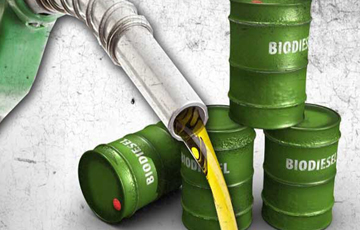
Bio Methane
Natural Gas is a clean and safe energy source with a variety of commercial applications, including electricity generation, heating, and fuelling transport. Biomethane differs from fossil-derived CNG/LNG as it is emitted from the decomposition of food and animal waste.
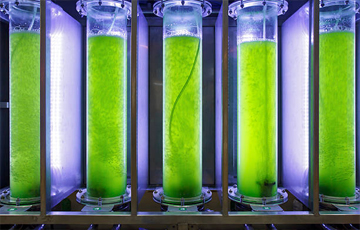
Gas Engine Oils
Excellent anti-wear properties to protect the engine against valve seat recession.
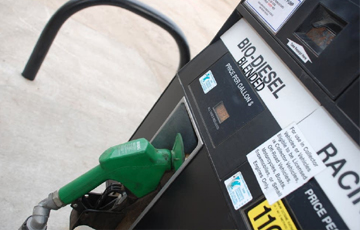
Energy
Oils for gas engines, compressors, turbines & marine engines.
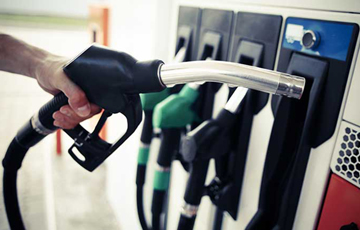
Automotive
Oils for cars, trucks & buses, agriculture vehicles, off-road vehicles, motorcycles and leisure marine vehicles.
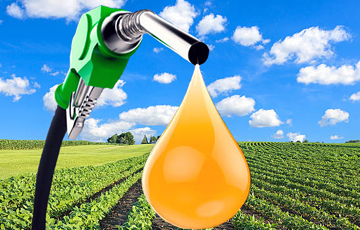
Metalworking
Oils for wire & tube drawing, removal, quenching, cold rolling, anti-corrosion and forming.




